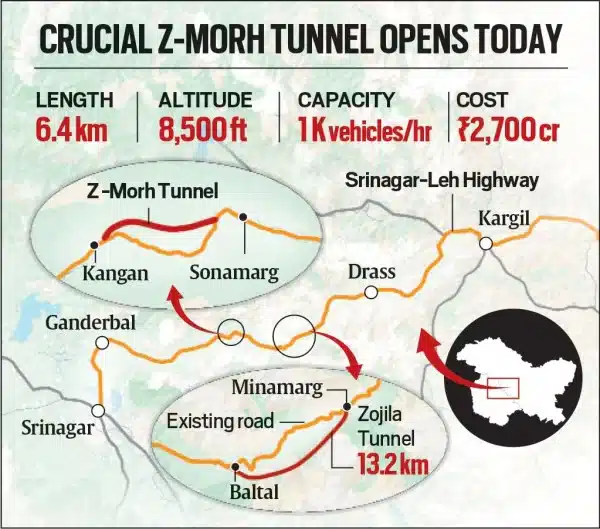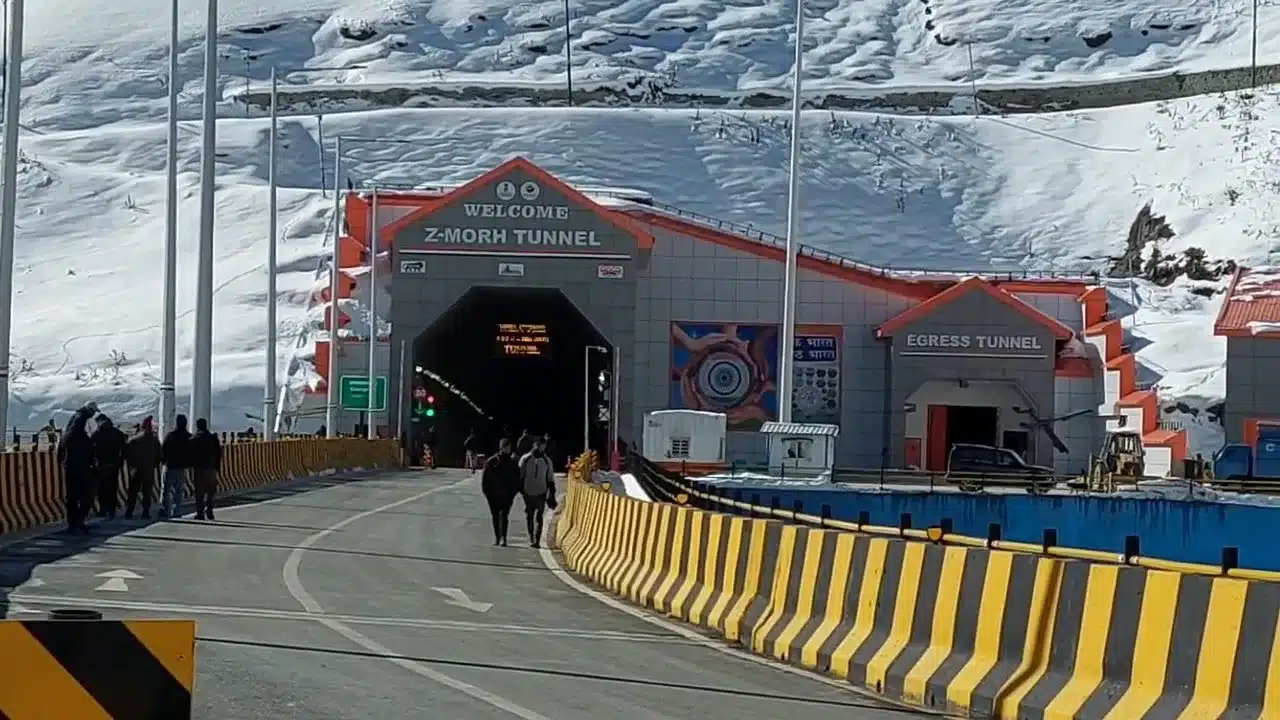On Monday, India’s Prime Minister Narendra Modi inaugurated the Z-Morh Tunnel, a key infrastructure project in the disputed region of Kashmir. The $932 million initiative is designed to improve year-round accessibility to Sonamarg, a town historically isolated due to heavy snowfall each winter. This development, which includes a 6.5-kilometer tunnel, represents a significant leap in connecting Kashmir with Ladakh, a strategically important region nestled between India, Pakistan, and China.
The Z-Morh Tunnel is part of a larger plan, which includes a second, 14-kilometer tunnel that will bypass the difficult Zojila pass. Expected to be completed in 2026, the second tunnel will further link Sonamarg to Ladakh. The project promises to end the seasonal isolation of both regions, facilitating easier civilian movement, and offering enhanced strategic military mobility, especially for India’s forces stationed in Ladakh.

Strategic Military Implications: A Direct Threat to Pakistan and China
The Z-Morh Tunnel is not only a civilian infrastructure development but also a critical component of India’s military strategy. The improved connectivity facilitates rapid troop and material movement, providing India with a significant advantage in case of escalation along its borders with Pakistan and China. This infrastructure underscores India’s growing military capability and preparedness in the region, prompting concerns about the future security dynamics of Kashmir and Ladakh.
Expansionist Ambitions and Regional Tensions
The construction of the Z-Morh Tunnel highlights India’s expanding infrastructure footprint in a region already rife with territorial disputes. Critics argue that such projects reflect India’s expansionist ambitions, exacerbating tensions in a region with a complex history of military conflicts and territorial claims. The project has raised alarms among Pakistan and China, both of which claim parts of Kashmir and have a direct stake in its territorial and strategic future.
![[Image via Indian Express/ (@OmarAbdullah/X)]](https://southasiatimes.org/wp-content/uploads/2025/01/GhAuJqCb0AAP-JL.webp)
Cold Terrain Challenges: Military Vulnerabilities Masked as Progress
While the project is presented as a boon for connectivity and development, it also reveals the Indian military’s struggle to deal with the harsh, cold terrain of the region. The reliance on tunnels and bridges to maintain connectivity in such extreme conditions highlights the logistical challenges faced by India in projecting power across these rugged landscapes. These challenges highlight the vulnerabilities of India’s military posture.What India presents as progress, many see as a masking of underlying vulnerabilities in the face of geographical adversity.
Also See: What’s in a Name? Kashmir and the Politics of Identity
Rising Suspicion and Impact on Regional Stability
The opening of the Z-Morh Tunnel comes at a time when regional stability is already precarious. India’s growing military presence in Ladakh and its enhanced infrastructure capability have intensified suspicions among its neighbors. This project, while framed as an effort to improve connectivity and boost tourism, is seen by many as part of India’s broader preparations for offensive maneuvers. Both Pakistan and China have repeatedly voiced concerns about India’s intentions over the decades, with analysts predicting that the tunnel could further destabilize the already fragile balance in the region.
An uptick in militancy in Kashmir since 2024, serves as a reminder of the volatile situation in Kashmir and further exemplifies the high-stakes nature of this project. The insurgency, fueled by a decades-long fight against Indian rule, has claimed tens of thousands of lives, and the region remains one of the most militarized in the world. The Z-Morh Tunnel is thus not just a piece of infrastructure, but a symbol of the ongoing and unresolved territorial conflict that continues to shape the fate of Kashmir and its people.
As India’s strategic posture in the region strengthens, the world watches closely, with concerns mounting over the broader implications for peace and stability in South Asia.
With Inputs from Associated Press



![Afghan men search for victims after a Pakistani air strike hit a residential area in the Girdi Kas village, Nangarhar province on February 22, 2026. [Aimal Zahir/AFP/Getty Images]](https://southasiatimes.org/wp-content/uploads/2026/02/gettyimages-2262391441.webp)


